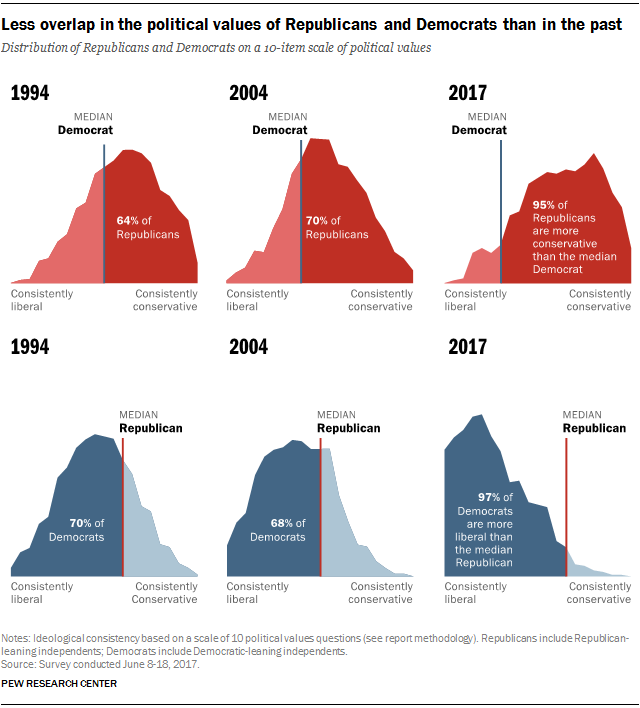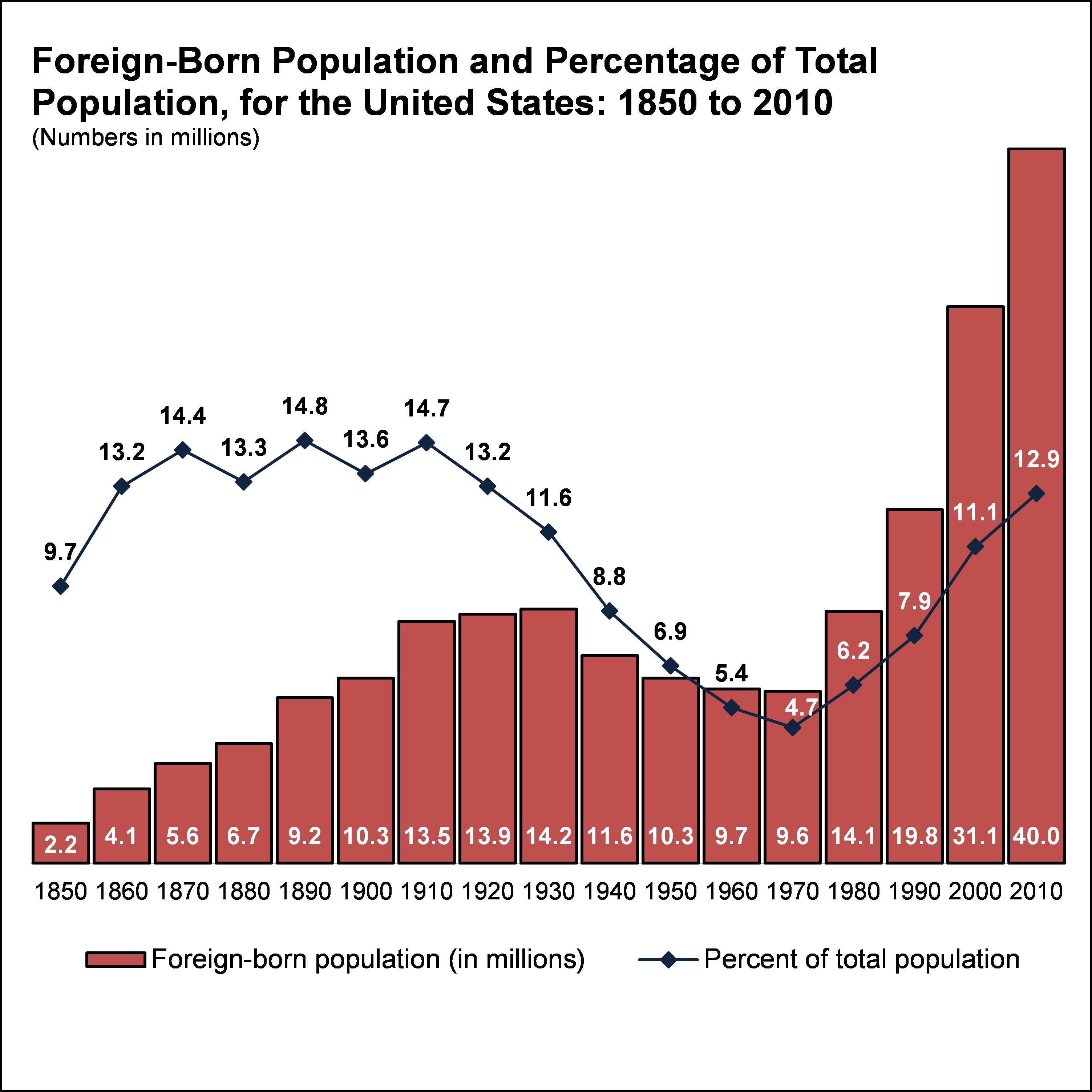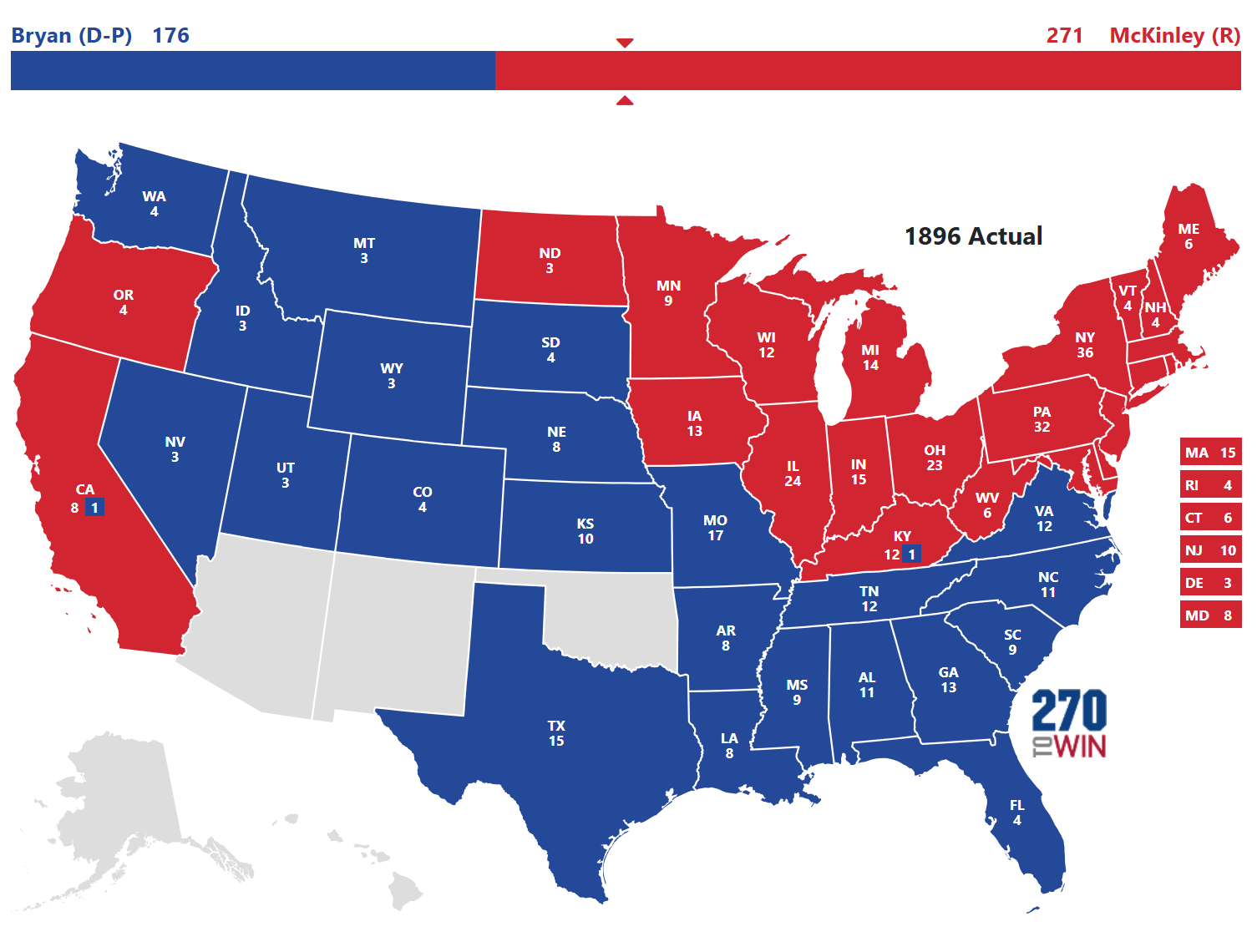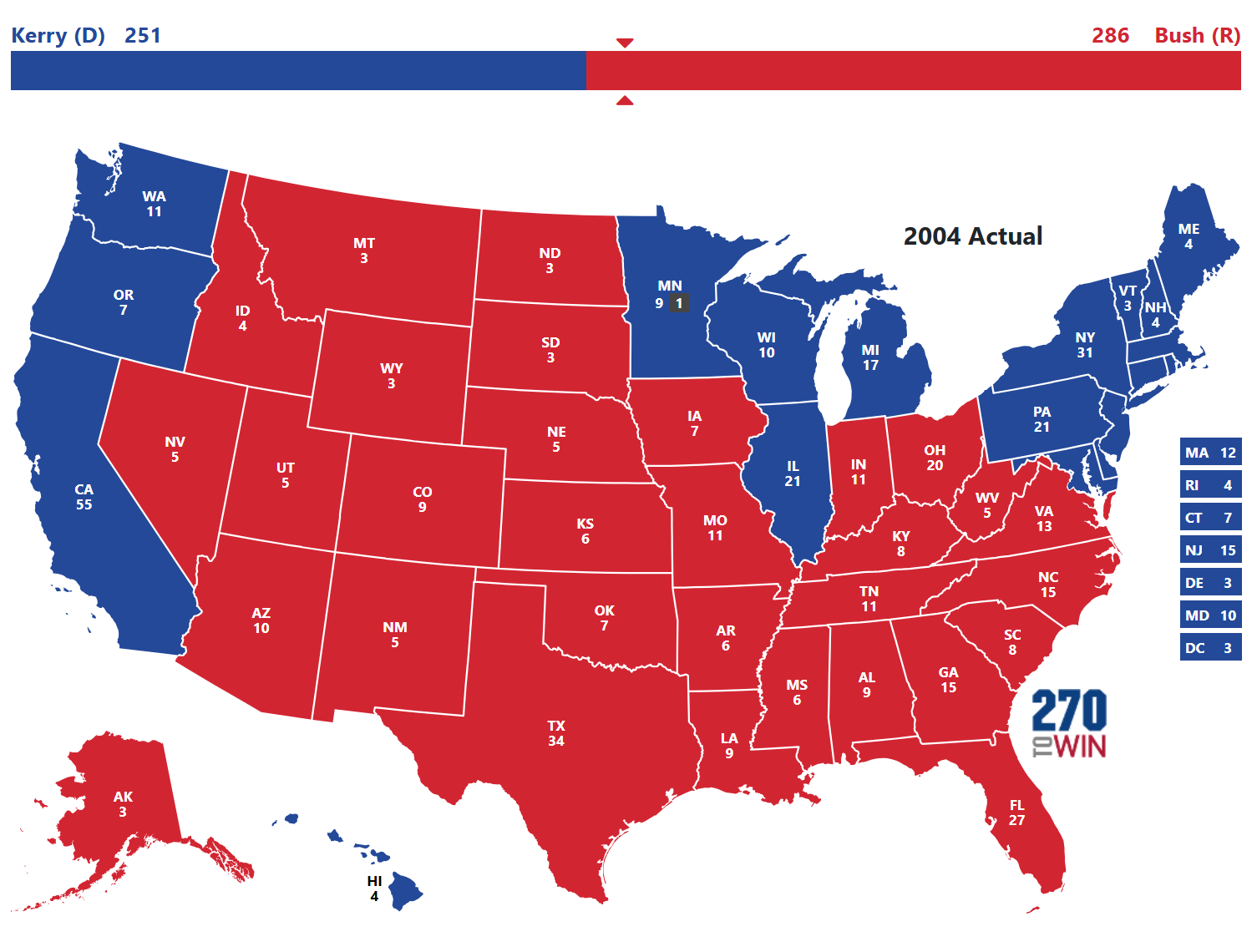General
For most of American history, basic features of the American constitutional system -- federalism, bicameralism, and the separation of powers -- tended to fragment and disperse party authority. American parties are not strict hierarchies but networks of ordinary voters, activists, and officeholders. In this respect, we must examine how the networks extend across several dimensions of American parties:
- Parties in the electorate (PIE);
- Party organization (PO);
- Partisan outside groups (POG);
- Party in government (PIG).
In this course, we shall study all these dimensions and consider what they mean for democratic government. We shall also discuss trends that have changed the character of parties. Polarization is the increasing division between parties along ideological, personal, and even cognitive lines. Nationalization is the increasing tendency of state and local politics to align with national politics.
Classes
Class sessions will include lecture and discussion. Finish each week's readings before class because our discussions will involve those readings. We shall also talk about breaking news stories about Congress, so you must read a good daily news source such as Politico or Axios.
Blog
Our class blog is at http://cmc-gov123.blogspot.com/. I shall post videos, graphs, news stories, and other material there. We shall use some of this material in class, and you may review the rest at your convenience. You will all receive invitations to post to the blog. (Please let me know if you do not get such an invitation.) I encourage you to use the blog in these ways:
- To post questions or comments about the readings before we discuss them in class;
- To follow up on class discussions with additional comments or questions.
- To post relevant news items or videos.
Grades
The following will make up your course grade:
- Three 4-page essays: 20% each
- One research paper: 25%
- Class participation, reading emails, blog: 15%
Details
- The papers will develop your research and writing skills. In grading, I will take account of the quality of your writing, applying the principles of Strunk and White’s Elements of Style. If you object, do not take this course, or anything else that I teach.
- You will each make a brief oral presentation on your research papers, both to give you experience with briefings and to supply you with comments and suggestions about your research.
- Participation includes your activity in class and online. I will call on students at random, and if you often miss sessions or fail to prepare, your grade will suffer. In addition, you may volunteer comments and questions. This experience will hone your ability to think on your feet. By Friday of every week, moreover, you will also email me brief (250 words max) reflections on the readings and class discussions.
- In addition to the required readings (below), I may also give you handouts, emails, and web links covering current events and basic factual information.
- Check due dates for coursework. Do not plan on extensions.
- As a courtesy to your fellow students, please arrive on time, and refrain from eating in class.
- Except as a documented disability accommodation, please do not use electronic devices (tablets, laptops, smartphones) in class. Take notes the old-fashioned way, by hand, on paper. Why? Research suggests that it works better.
- Plagiarism and other forms of academic dishonesty are not victimless offenses, because they hurt fellow students. Please study our Statement of Academic Integrity, which reads in part: "The faculty of Claremont McKenna College is firmly committed to upholding the highest standards of academic integrity. Each faculty member has the responsibility to report cases of academic dishonesty to the Academic Standards Committee."
- This class welcomes viewpoint diversity. See: https://heterodoxacademy.org/library/advice-on-syllabus-language/
- Your experience in this class is important to me, and I have a particular interest in disability. If you have set up accommodations with Accessibility Services at CMC, please tell me about your approved accommodations so we can discuss your needs in this course. You can start by forwarding me your accommodation letter. If you have not yet established accommodations but have a temporary health condition or permanent disability (e.g., mental health, attention-related, learning, vision, hearing, physical or health), please email accessibilityservices@cmc.edu to ask questions or begin the process. General information and accommodations request information are at the CMC Accessibility Services website.
Required Books (make sure that you get the correct edition of each book.)
-- Matthew Arnold
- Gregory Koger, Seth Masket, and Hans Noel, "No Disciplined Army: American Political Parties as Networks," in The Oxford Handbook of Political Networks, ed. Jennifer Nicoll et al. (New York: Oxford University Press, 2018). ON SAKAI.
Jan 23, 25: The Two-Party System
“In any other country, Joe Biden and I would not be in the same party, but in America, we are.” -- Rep. Alexandria Ocasio-Cortez (D-NY)
FIRST FOUR-PAGE ESSAY ASSIGNED JAN 25,
DUE IN SAKAI DROPBOX BY FRIDAY, FEBRUARY 9.
Jan 30, Feb 1: Party History I
"Look at your houses, your parents, your wives, and your children. Are you prepared to see your dwellings in flames, hoary hairs bathed in blood, female chastity violated, or children writhing on the pike and halberd?" -- Connecticut Courant, September 30, 1800, on what the election of Thomas Jefferson would bring.
- Rosenfeld, introduction, and ch. 1-4.
Feb 6, 8: Party History II
"The whole world is watching! The whole world is watching!" -- Chicago protest crowd, 1968
Feb 13, 15: Party History III
"Things fall apart; the centre cannot hold;
Mere anarchy is loosed upon the world,
The blood-dimmed tide is loosed, and everywhere
The ceremony of innocence is drowned . . ."
-- William Butler Yeats
- Rosenfeld, ch. 7-8 and conclusion.
Feb 20, 22: Party Organization
"To divide their county into small districts, and to appoint in each a subcommittee, whose duty it shall be to make a perfect list of all the voters in their respective districts, and to ascertain with certainty for whom they will vote. If they meet with men who are doubtful as to the man they will support, such voters should be designated in separate lines, with the name of the man they will probably support." -- Abraham Lincoln, Whig circular, 1840
Feb 27, 29: Campaign Finance and Outside Groups
"We are under no illusion that BCRA will be the last congressional statement on the matter. Money, like water, will always find an outlet." -- Justices Stevens and O'Connor in McConnell v. FEC
- Hershey, ch. 12.
- Excerpts from Henrik M. Schatzinger and Steven E. Martin, Game Changers: How Dark Money and Super PACS are Transforming U.S. Campaigns (Lanham, Maryland: Rowman and Littlefield, 2020). On Sakai.
- Current readings on outside money. ON SAKAI.
SECOND 4-PAGE ESSAY ASSIGNED BY FEB 27,
DUE IN SAKAI DROPBOX BY MAR 8.
Mar 5, 7: Party in the Electorate
Selina: Come on, let's go somewhere. Let's meet the public.
Mike: You want to normalize it?
Selina: Yes, exactly. I want to meet some regular normals. Where we gonna find them?
Mike: Photo op with the normals and the normalistas.
--Veep, season 1, episode 2.
Mar 12, 14: Spring Break
Mar 19, 21: Nominations and Elections
Joe Cantwell: I don't understand you.
William Russell: I know you don't. Because you have no sense of responsibility toward anybody or anything. And that is a tragedy in a man, and it is a disaster in a president. -- Cliff Robertson and Henry Fonda in The Best Man
Mar 26, 28: Party in Government
"It's hard to overstate the extent to which Democrats and Republicans inhabit different worlds in Congress. Our parties meet separately and organize separately, from the broad division of House members into a Republican Conference and a Democratic Caucus to the structure of every committee, most staff positions, and even social clubs -- the Capitol Hill Club for Republicans, the National Democratic Club for Democrats." -- Liz Cheney
Apr 2, 4: Oral Presentations
Apr 9, 11: Polarization
"The Democratic Party is possessed by preternatural evil. It is not a human institution any more. It is an instrument of wicked spirits." -
Remarks in 2022 by right-wing commentator (and former student!)
- Jay J. Van Bave et al., "The Costs of Polarizing a Pandemic: Antecedents, Consequences, and Lessons," Perspectives on Psychological Science (2023). ON SAKAI
- Readings on the events of January 6, 2021. ON SAKAI.
RESEARCH PAPER DUE IN SAKAI DROPBOX
BY FRIDAY APRIL 12
Apr 16, 18: Third Parties and Electoral Reform
“Democrats are...the party that says government can make you richer, smarter, taller and get the chickweed out of your lawn. Republicans are the party that says government doesn't work, and then they get elected and prove it.” -- P.J. O’Rourke
THIRD 4-PAGE ESSAY ASSIGNED BY APR 18,
DUE IN SAKAI DROPBOX BY MAY 1
April 23, 25: Appraisal I
“We're like a Third World country when it comes to some of our election practices.” – Donna Brazile
May 5: Appraisal II
“We all want progress. But progress means getting nearer to the place where you want to be. And if you have taken a wrong turning then to go forward does not get you any nearer. If you are on the wrong road progress means doing an about-turn and walking back to the right road and in that case the man who turns back soonest is the most progressive man.” – C.S. Lewis









